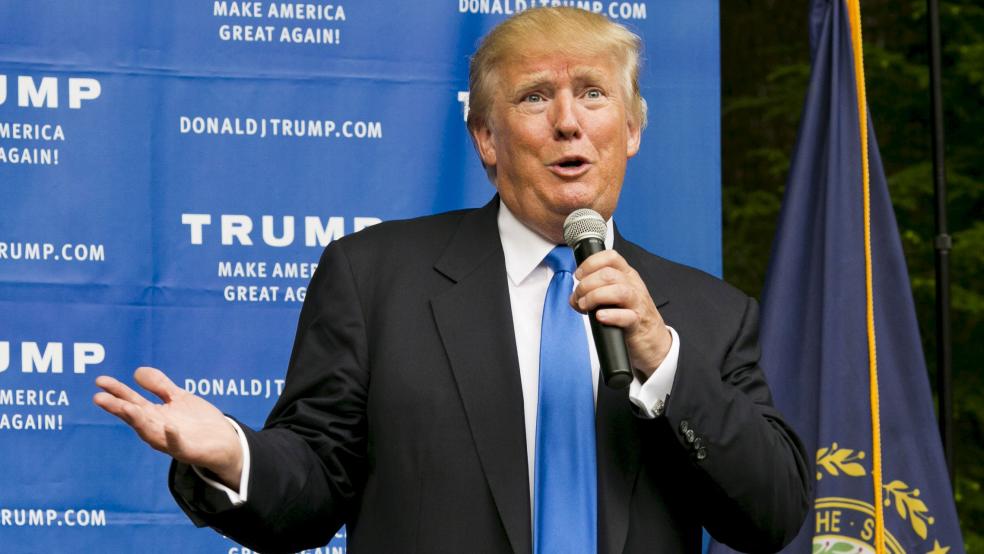The conservative-leaning Tax Foundation, a D.C. think tank dedicated to tax policy issues, had some good news for billionaire and former reality television star Donald Trump on Tuesday. Trump, who still leads most polls in the race for the GOP Presidential nomination, released his plan to overhaul the nation’s tax system on Monday and came under fire from analysts across the ideological spectrum for the proposal, which would gut federal revenue and deliver a massive windfall to the wealthy while adding more than $11.98 trillion to the federal debt over the coming decade.
However, the Tax Foundation pointed out in an analysis Tuesday that the $11.98 trillion figure is based on a “static” rather than a “dynamic” analysis of the effect of Trump’s plan.
Related: Trump Vows Lower Tax Rates, Revised Trade Agreements, Deep Spending Cuts
The difference is that a dynamic analysis of the proposal reflects the best estimates economists can make about the macroeconomic effects of dramatically lower taxes – things like increased consumer spending and investment. When the Tax Foundation ran a dynamic analysis, its researchers determined that the $11.98 trillion estimate was incorrect.
“Our analysis finds that the plan would reduce federal revenues by $11.98 trillion over the next decade,” wrote the Tax Foundation’s Alan Cole. “However, it also would improve incentives to work and invest, which could increase gross domestic product (GDP) by 11 percent over the long term. This increase in GDP would translate into 6.5 percent higher wages and 5.3 million new full-time equivalent jobs. After accounting for increased incomes due to these factors, the plan would only reduce tax revenues by $10.14 trillion.”
But it would also, by dramatically increasing the country’s indebtedness, drive up the interest rate the government is forced to pay to borrow money, which would in turn likely make that figure even higher.
“Donald Trump’s tax plan would enact a number of tax reforms that would both lower marginal tax rates on workers and significantly reduce the cost of capital,” Cole wrote. “These changes in the incentives to work and invest would greatly increase the U.S. economy’s size in the long run, leading to higher incomes for taxpayers at all income levels.”
Related: Trump, Obama and Bush Agree – Close the Carried Interest Tax Loophole
But it’s difficult to get past the massive increase in the deficit that the Trump plan would create. Asked how his plan would close the gap, Trump on Monday said that a key element of his plan would be to do away with the carried interest loophole in the tax code, which allows investment managers to pay taxes on their fees as though they are capital gains.
Experts say closing the carried interest loophole would save something on the order of $18 billion over ten years – or about 0.2 percent of the figure Trump’s proposal would add to the deficit.
And that’s assuming that the Tax Foundation’s analysis is correct. On Tuesday afternoon, Len Burman, director of the Urban-Brookings Tax Policy Center, tweeted that he’s not sure that the effect on economic growth of the Trump plan would be positive at all.
I think @taxfoundation got the sign of macro effect wrong. #Trump plan's debt would be big drag on the economy.
— Len Burman (@lenburman) September 29, 2015
But if nothing else, Trump should get credit for putting numbers on paper and letting experts debate them. Not all the candidates in the race for the GOP nominations have done as much.





